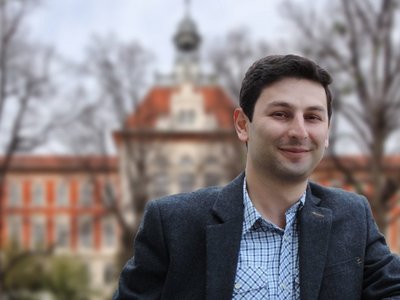

My home country Armenia is in a transition process from the Soviet-System towards a market economy and nowadays faces several social, economic, political, and environmental problems, which are also influenced by the current pandemic situation and the recent war in Nagorno Karabagh. To address these complex societal challenges, the integration of different types of knowledge is required. Universities play a vital role in this regard by bringing together academic-, as well as practical knowledge. Transdisciplinarity provides a way to strengthen the role of universities in society and to involve them in the real-life problem-solving process.
The objective of my doctoral research was to shed light on specific challenges of and opportunities for integrating and applying transdisciplinary approaches in post-Soviet academic institutions particularly focusing on Armenia and Georgia. My research was part of the APPEAR project Transdisciplinarity for Sustainable Tourism Development in the Caucasus Region (CaucaSusT) which aimed to enhance the university-community cooperation in the Caucasus mountain region focusing on sustainable tourism development. For my research I developed an analytical framework based on four interrelated dimensions: (1) understanding the societal role of universities, (2) practical organization of transdisciplinary processes, (3) internal structure of the academic system, and (4) societal conditions of governance. The research design combined different methods of qualitative research. The dimensions of this framework have been addressed in several papers which were published in international peer-review journals (see links below). My study results show that the CaucaSusT project successfully integrated transdisciplinary approaches into the curricula of the partner universities in Armenia and Georgia. Moreover, due to the collaboration with Austrian Partners, students, and teachers in Armenia and Georgia became familiar with different innovative teaching and research methods.
Studying in Austria provided a great opportunity for me to grow personally and professionally. I improved my presentation and public speaking skills in a multicultural environment, gained experience in the field of sustainability, published in peer-reviewed scientific journals, and co-authored a teacher manual (see below). The most important achievement/transformation for me was to widen my worldview, become more confident and competent in the field of international research and education. Of course, I also realized that there are still many things and skills that need improvement.
During my studies in Austria, my supervisor, colleagues, and friends living in Vienna helped me to familiarize myself with the local culture/habits/customs. ‘Sprachencafés’ helped me to improve my German language as well as communication skills. Participating in the different cultural events (e.g., visiting museums and concerts) provided good opportunities to immerse myself into the Austrian culture.
For the future I plan to continue my academic pathway in teaching and research and continuously contribute to solving complex societal problems. I also wish to contribute to the APPEAR programme in achieving its long-term goals by widening networks and creating new possibilities for the developing countries to engage with the international scientific community.
Publications:
Keryan, T.; Muhar, A.; Mitrofanenko, T.; Khoetsyan, A.; Radinger-Peer, V. Towards Implementing Transdisciplinarity in Post-Soviet Academic Systems: An Investigation of the Societal Role of Universities in Armenia. Sustainability 2020, 12, 8721. doi.org/10.3390/su12208721
Keryan, T.; Mitrofanenko, T.; Muhar, A.; Khartishvili, L. UNESCO's Education for Sustainable Development Framework and the Reality of University–Community Cooperation in the Caucasus Mountain Region. Mountain Research and Development 2020, 40(4). doi.org/10.1659/MRD-JOURNAL-D-20-00023.1
Tigran Keryan received his doctoral degree in Social and Economic Sciences (Dr.rer.soc.oec.) associated with the CaucaSusT project at the Doctoral School Transitions to Sustainability (T2S) at the BOKU University of Natural Resources and Life Sciences, Vienna, Austria. Previously he worked as a geography and environmental sciences schoolteacher in Armenia and was involved in different academic and development projects in the field of sustainable development.
